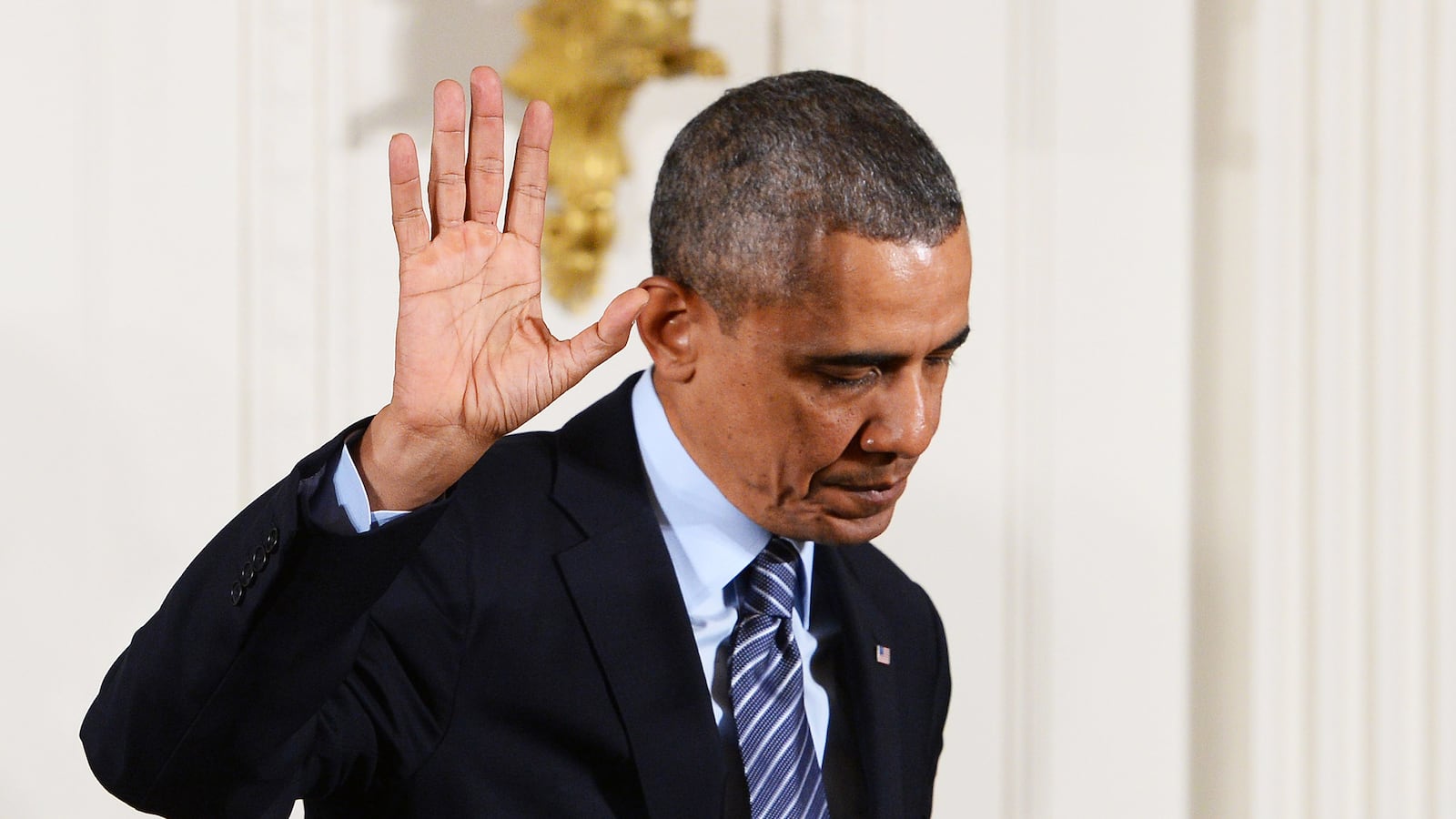
For all of the fanfare around it, “My Brother’s Keeper” is the latest in a line of programs that are aimed impoverished, urban areas. If it differs from other efforts—including the “opportunity zones” of Republican anti-poverty thinking—it’s in its funding scope ($200 million over five years) and its specificity: It’s aimed at young, low-income minority men.
Given the extent to which American life is stacked against them—from high unemployment and few opportunities to unequal treatment in the criminal justice system and unequal treatment in schools—a program like My Brother’s Keeper is the least we can do.
Unfortunately, not everyone agrees. To some conservatives, this program isn’t just misguided—it’s equivalent to institutionalized discrimination. On Twitter, Fox News contributor Todd Starnes complained that “Caucasian is not one of the colors getting helped” by Obama’s new initiative, and that he “dreams of a day when all men – and women – are treated equally.” Since, you know, Obama is the real racist.
Likewise, at the National Review, Roger Clegg attacks “My Brother’s Keeper” as just another form of “profiling”:
It is almost always unconstitutional for the government (and any private program that receives federal money) to discriminate on the basis of race and ethnicity. There is no “compelling” interest to do so here. It may be that a disproportionate number of blacks and Latinos are at-risk, but many are not, and many whites, Asians, and others are. This is just another kind of “profiling.”
Indeed, Clegg continues the argument with a staggeringly dumb allusion to Jim Crow: “This is just another separate but equal argument.”
Yes, that’s right. A program meant to help a group that—as a result of decades of federal and state policy—is at high risk for bad outcomes is the same thing as racial segregation. There’s a long list of reasons for why this is idiotic, but it suffices to say that to level an object, you need to exert opposing force. If we want flush opportunities between all racial groups, and blacks in particular, then we need to take material steps in that direction. Legal equality, alone, isn’t enough.
With that said, it’s no surprise that Clegg is an opponent of “My Brother’s Keeper.” As the head of the (misnamed) Center for Equal Opportunity, Clegg’s big idea is that efforts to ameliorate racial discrimination are as bad—if not worse—than actual discrimination. His piece was the boilerplate of an uninspired reactionary.
The same is true of this from Jennifer Rubin of the Washington Post, who used Clegg’s point to accuse Obama—and Democrats broadly—of hypocrisy:
It’s odd, really, that we just got through celebration of the veto of Arizona’s anti-gay legislation that would have allowed business owners to refuse service on the basis of sexual orientation – if they could show they are acting upon a sincerely held religious belief. That was Wednesday. Now on Thursday the government itself wants to exclude at-risk boys who don’t meet the racial and ethnic requirements of the program.
She continues:
The problem with hyping gender and racial differences is not simply the increased resentment and divisiveness it creates but also that it uses victimhood as a political weapon. Pretty soon words like “discrimination” lose meaning. It seems you are either for an inclusive society – devoted to diminishing racial, ethnic, religious and other distinctions — or you’re not.
There’s a lot that Jennifer Rubin doesn’t understand. Some of it is in this post. Like Clegg, Rubin doesn’t understand that there’s a qualitative difference between discriminating to deny equal opportunities, and discriminating to impose them, and that the former only “loses meaning” if you pretend it doesn’t exist. She doesn’t understand that that you’re not “hyping” gender and racial differences by acknowledging they exist, and that they mean something for socioeconomic outcomes. And she doesn’t understand that those differences come with identities that people love and cherish.
I am a black American descendent of slaves. This ties to me a long history and beautiful culture of accomplishment and perseverance. I have no interest in “diminishing” that distinction. What I want is to live in a world where that distinction—or any other—doesn’t diminish my opportunities. What I want is to live in a world where being black, or Latino, or Asian, or a woman, or gay, or transgender isn’t a risk factor.






